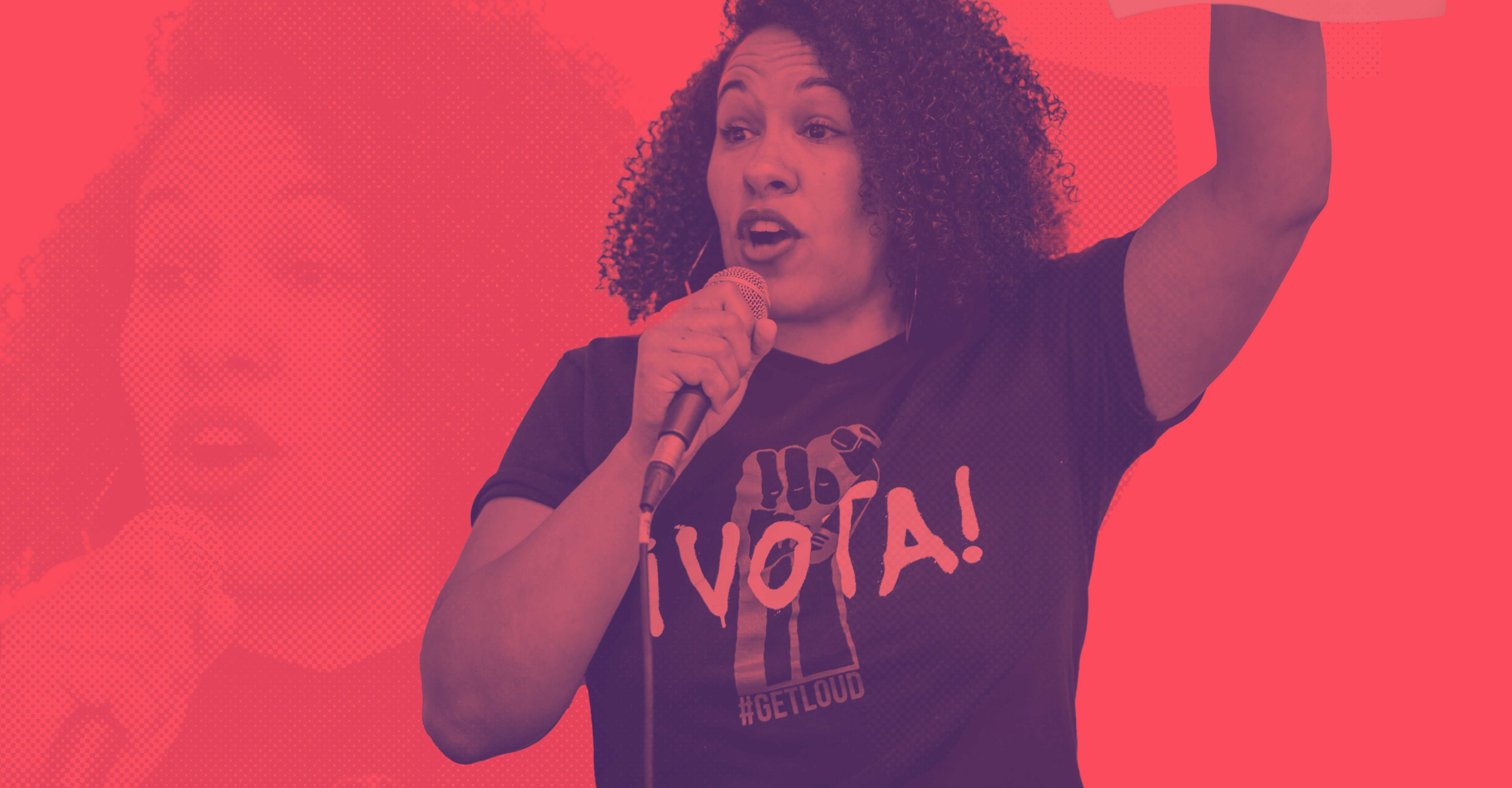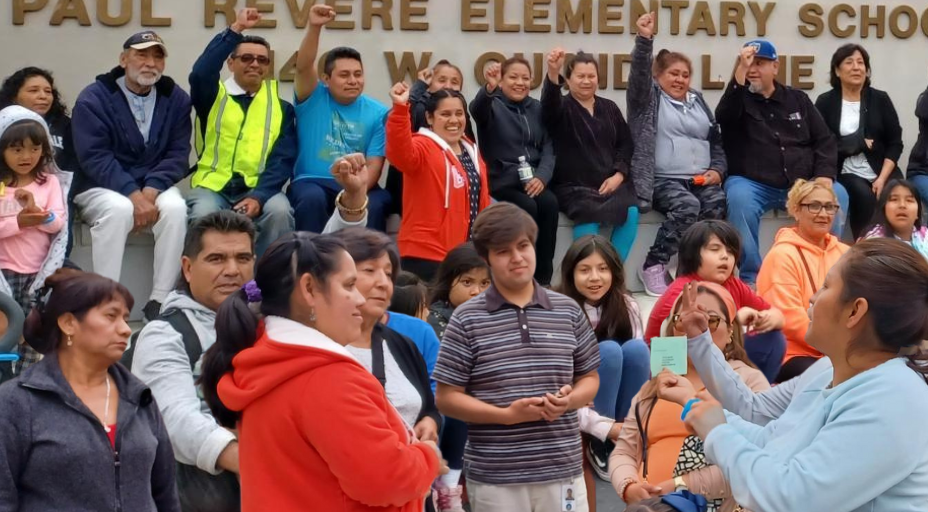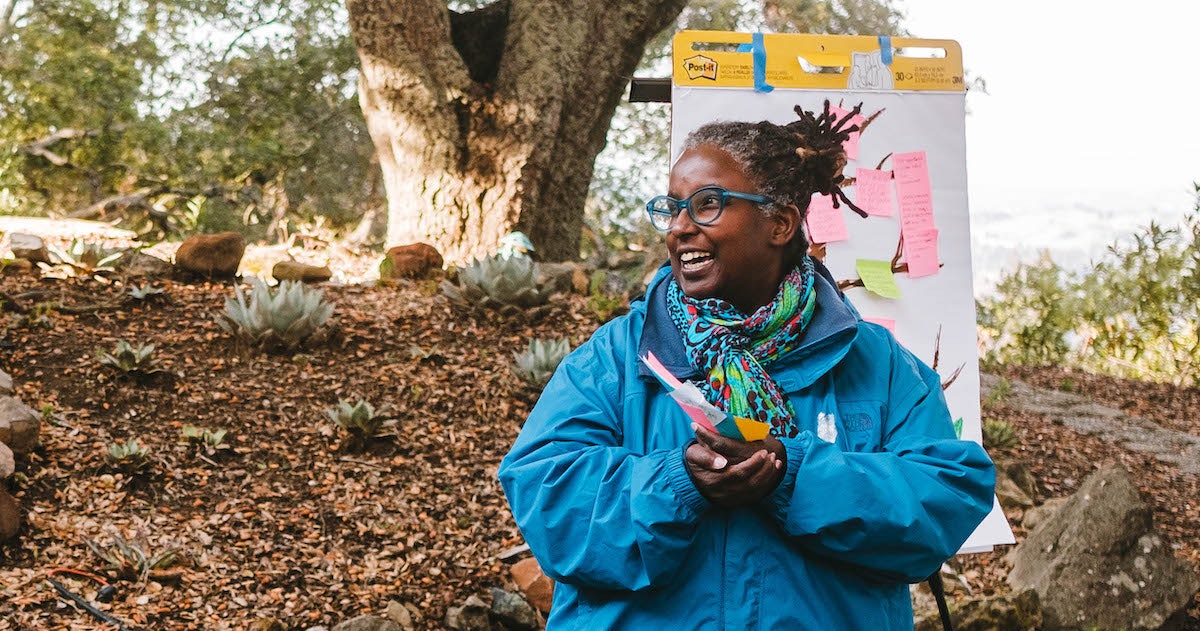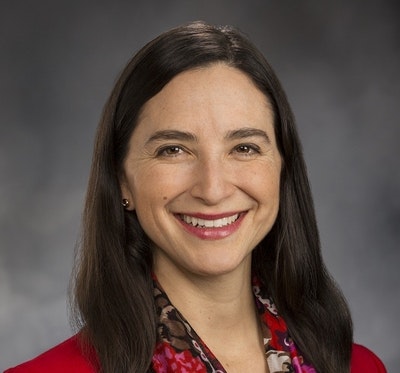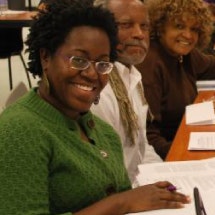Across the country, Partnership affiliates are developing new leaders in the fight for economic justice in our communities. We’ve provided outlets for youth and community members to learn about and engage in their city’s decision making process. We have built relationships with more than 500 elected or appointed local leaders who are aligned on our issues. Nearly 100 of these leaders are leading the change process on the local and national levels. Leadership development is incorporated into the core of our work and pathways for new movement leaders in our neighborhoods, on appointed boards and commissions, and in local elected positions are thriving. This true community engagement fosters strong campaigns that can bring about real, substantial change for our cities. These are just some examples of how we create this change from Phoenix to Milwaukee to Atlanta and more.
Youth
Last year, an entirely new crop of organizers led an army of electrified Phoenix-area high schoolers in a voter registration campaign that created 34,327 new voters to fight for the New Arizona. In 2013, Central Arizonans for a Sustainable Economy (CASE) is developing that power into greater change, largely by developing last year's campaign muscle into movement leaders. One of those young leaders, Arizona State University undergraduate Melissa Garcia, has joined CASE’s staff to continue organizing other young people to use civic engagement to win on the issues they care about most. Because of her work, more new Latino voters, like senior Robert Soriano of Cesar Chavez High School, understand that voting and registering others can make a difference for immigrants' rights and his family's economic rights. (Read about how Robert makes the connection in his work with CASE and our partners in his blog post for The Nation.)
The Students for Economic Justice Summer Internship Program is a project of the Center on Policy Initiatives (CPI). The program builds stronger capacity for community organizing in San Diego. The intensive 6-week course gives students organizing training through political education, skills building, and hands-on experience working on campaigns for economic and social justice. Students are trained by community leaders and finish the program with a better understanding of the political landscape of the region.
Working Partnerships USA (WPUSA) piloted its youth internship program, Justice Summer, in 2012. The program combines classroom learning and field training for emerging organizers and activists, with real-time experience working on a campaign. Last year’s program focused on the campaign to raise the minimum wage in San Jose. The 8-week course provided participants with instruction and experience conducting strategic research, training on policy development, political education, and hands-on organizing experience with the Raise the Wage campaign.
Civic Leadership
The Civic Leadership Institute (CLI) was developed fifteen years ago in San Jose by WPUSA. The CLI is an 8-12 week curriculum that gives participants the tools to understand the local decision making process, who influences the process, and how to organize for change. Over the years, Working Partnerships has trained more than 500 South Bay activists who have helped transform local government into a public sector benefiting all classes and constituencies in Silicon Valley. Their impressive victories range from health care for all children, new development projects that create career opportunities and affordable housing, and an increase in San Jose’s minimum wage. WPUSA has supported the development of CLI’s in a number of Partnership cities.
The Georgia Stand-UP Policy Institute for Civic Leadership has trained scores of local leaders who participate in many forms of leadership: Neighborhood Councils, community engagement tables, and local elected office. Elected in 2010, Fulton County Commissioner Joan Garner is a 2008 graduate of the Policy Institute. She is the first openly gay member of the commission and says, "the policy institute provides a platform for citizen engagement and activism which allows them to make effective decisions for their communities."
Citizen Action of Wisconsin Education Fund (CAWEF) kicked off their latest leadership class in February. Thirty key activists, high level staff, and local elected officials are participating in the 8 week course. Participants come from a variety of backgrounds and are working to develop a common understanding of how to build a high road local economy that works for everyone.
Milwaukee County Supervisor David Bowen is participating in the course because the County is considering selling off a significant amount of publicly owned land. Supervisor Bowen wants to ensure the publicly subsidized land sales will benefit the entire community, not just the developer. Milwaukee 9to5 Organizer Lenise Vickers plans to take the knowledge gained during the course to empower low wage working women to participate in local economic development conversations. At the end of the eight week session, participants will compile a list of high road policy recommendations to elected officials and members of Milwaukee's business community.
Community Leaders
In preparation for the San Jose budget season, WPUSA has convened a group of community leaders who are working together to ensure the City budget reflects the community's values and priorities. The Community Budget Working Group (CBWG) trains people how to understand and analyze city budgets and develop alternatives based on their own values and priorities. The CBWG has become an effective advocate at forums and meetings where budgets are decided. Since it was first convened in 2007, the CBWG has saved millions in city services including public safety, libraries and senior programs.
In addition to mobilizing new voters, OCCORD’s civic engagement program identified 80 new potential leaders. This is part of a long-term movement building strategy to organize neighborhood Unions in Anaheim. Two leaders from this effort have been elected as the first Chicana leaders of their Neighborhood Councils.
Elected Leaders
The Connecticut Center for a New Economy has spent over a decade organizing for a new social contract in New Haven. Strategic issue campaigns and community leader training have produced a whole new generation of community leaders who have been part of CCNE’s work. Some of these leaders have gone on to hold Citywide elected office. CCNE is developing a curriculum to support these new leaders as they develop legislation to improve the lives of their constituents.
One of the leaders who has been active with CCNE the longest, Delphine Clyburn, recently led the organizing that secured a community benefits agreement (CBA) between Achievement First, a charter school organization, and the predominantly African-American Newhallville community where the school will be built.
While Delphine's unwavering commitment to bettering her community runs deep, her sense of herself as a leader developed over time -and didn't include plans to pursue elected office. Over the years, however, Clyburn's participation in CORD (Communities Organized for Responsible Development) organizing to win a CBA with Yale-New Haven Hospital, door-knocking and volunteer recruitment with the Community Voter Project, and participation in CCNE's 2011 Values-Based Leadership Institute readied her to represent her neighborhood and her city at the Board of Aldermen.
CCNE is providing ongoing training for Delphine and her colleagues on the Board -most of whom were not career politicians but community and labor leaders- in order to deepen their grasp on the legislative process, strengthen their sense of shared values and commitment to work as a team, and aid them in carrying the transformative vision and leadership capacities forward as they continue to implement a grassroots community agenda for New Haven.
